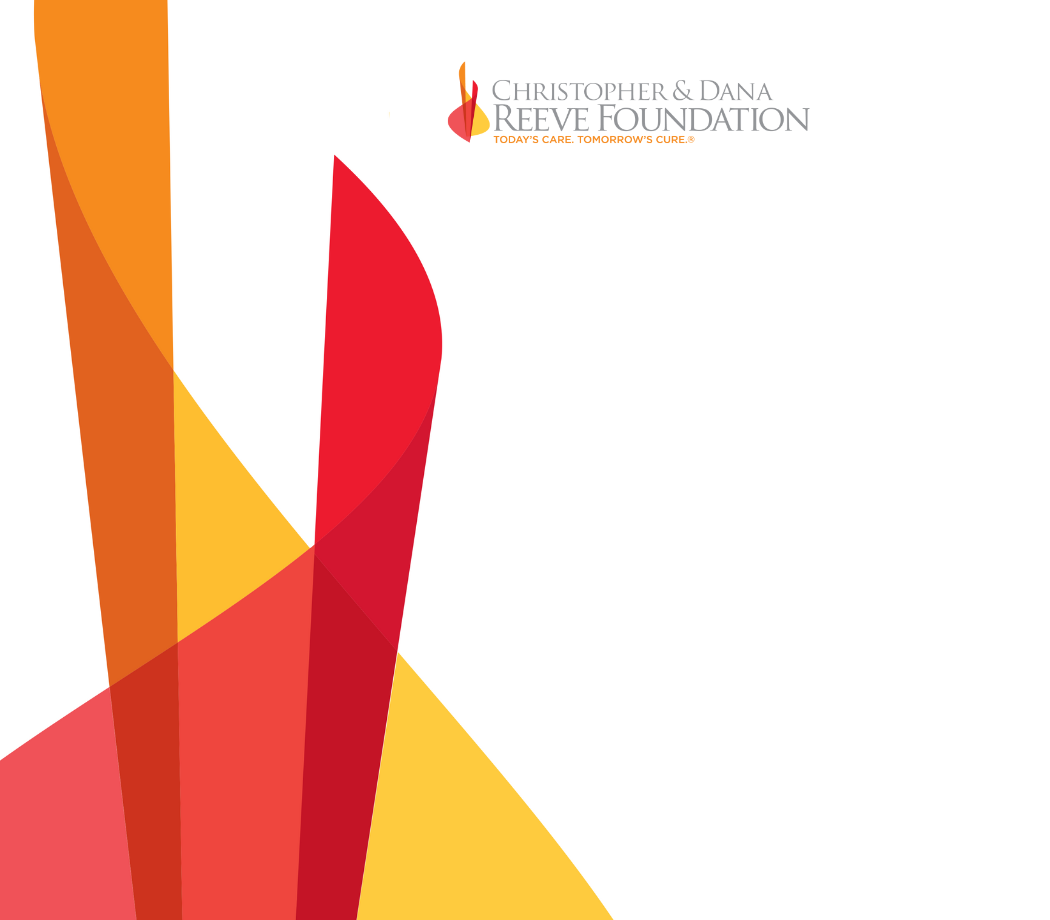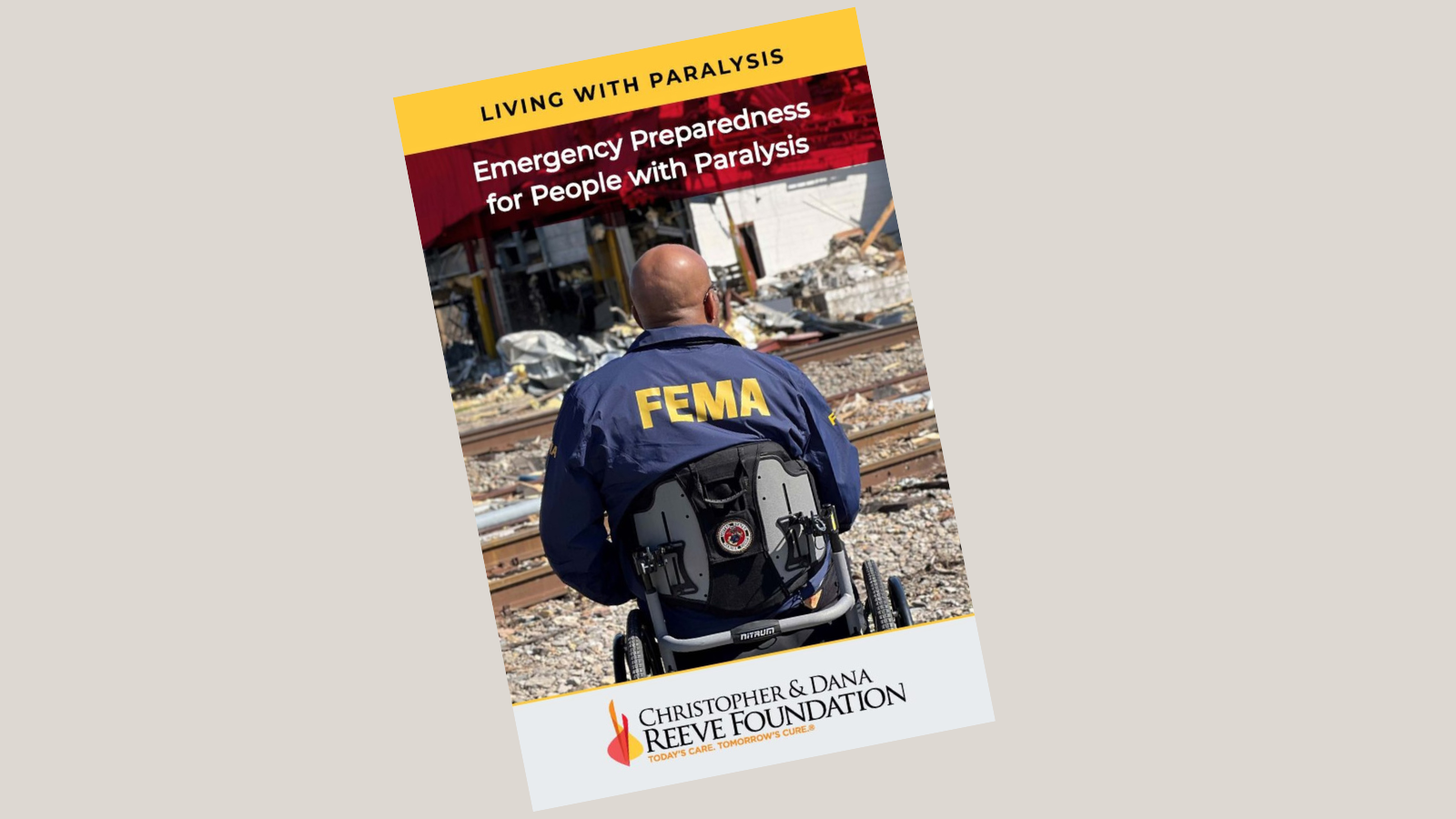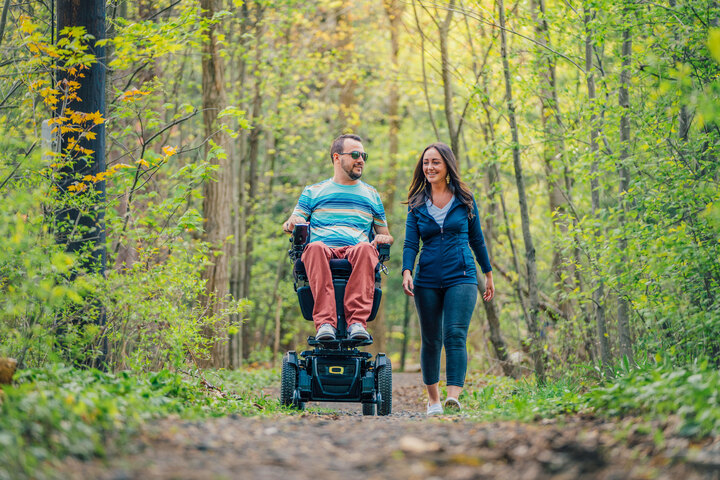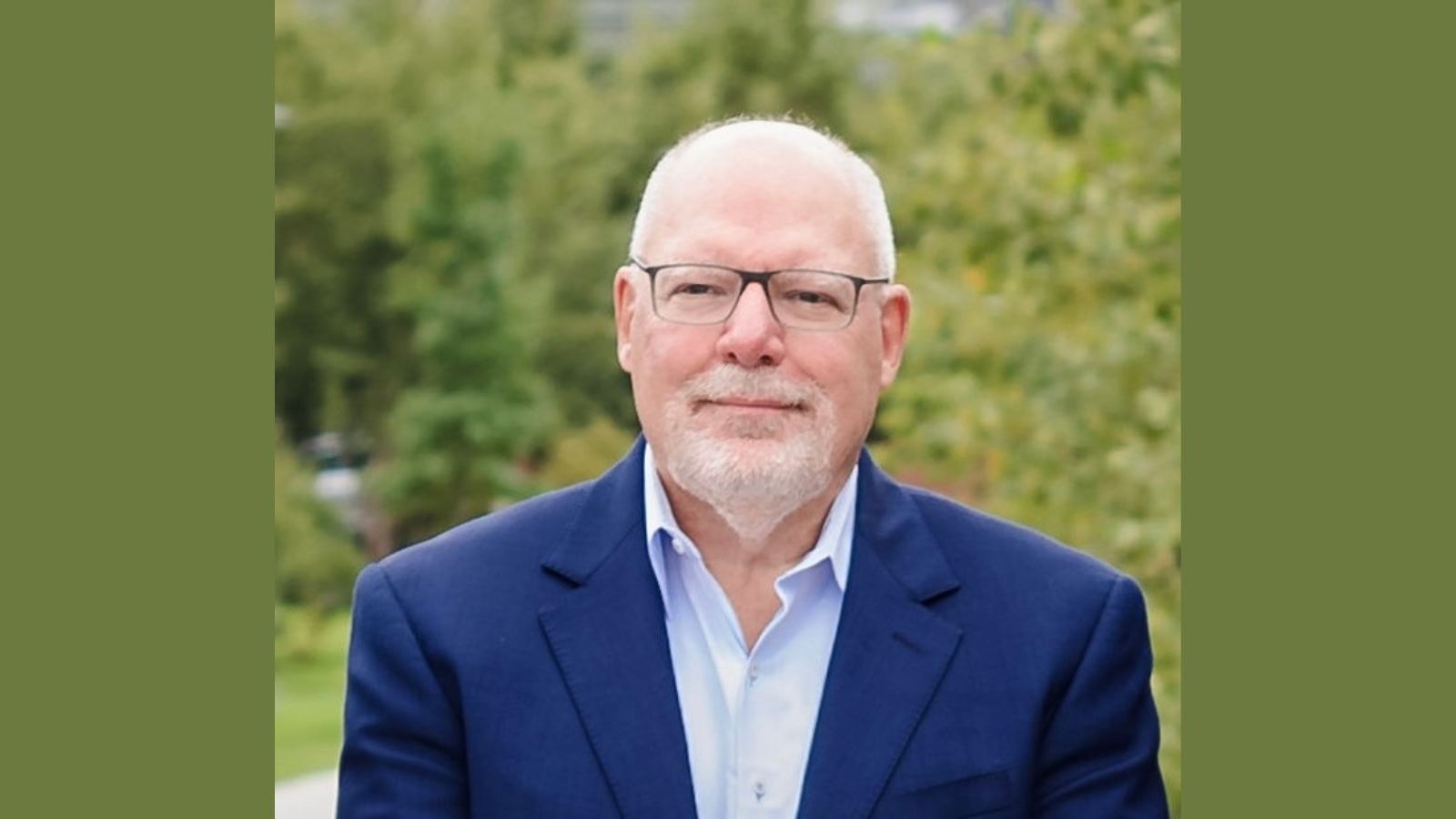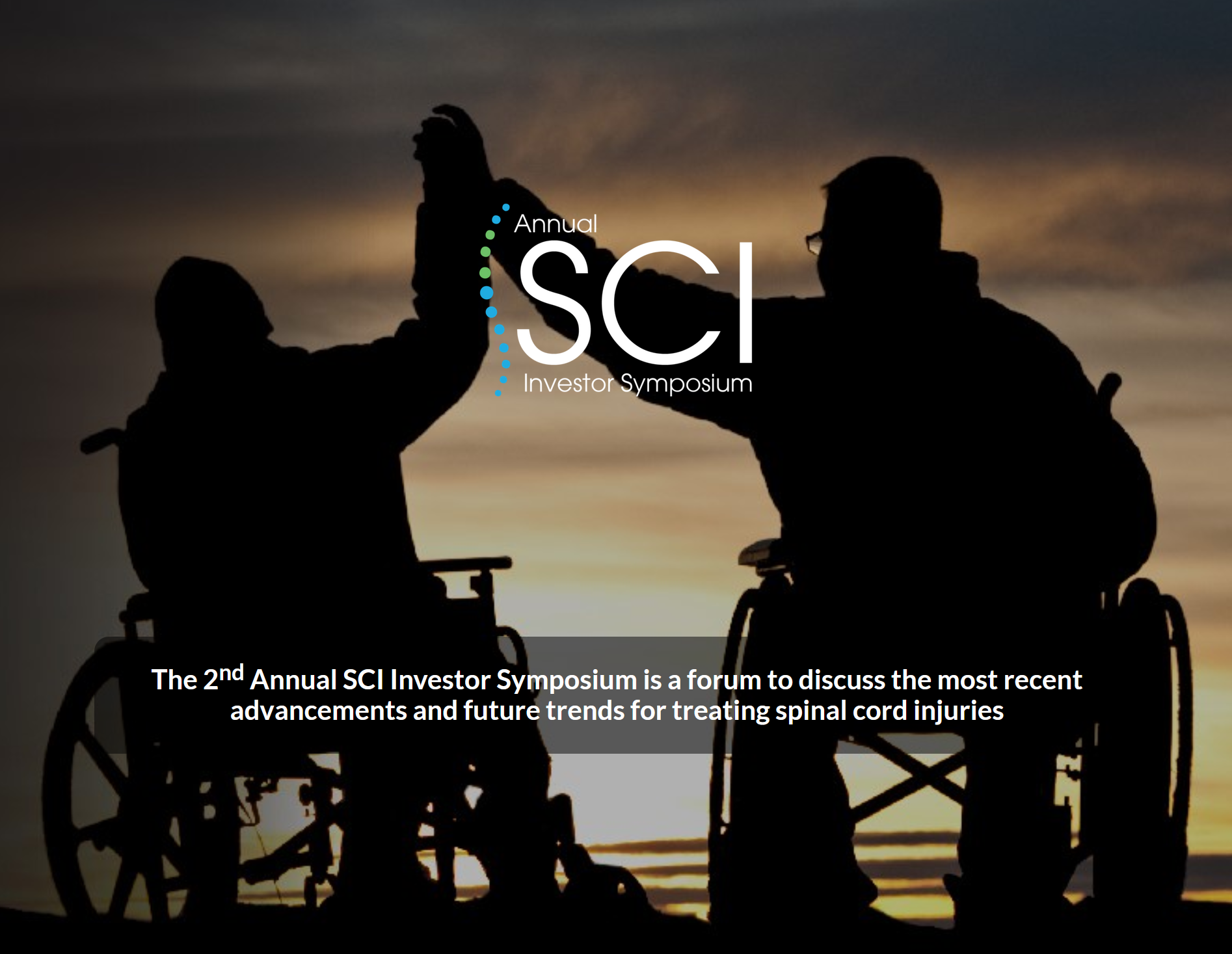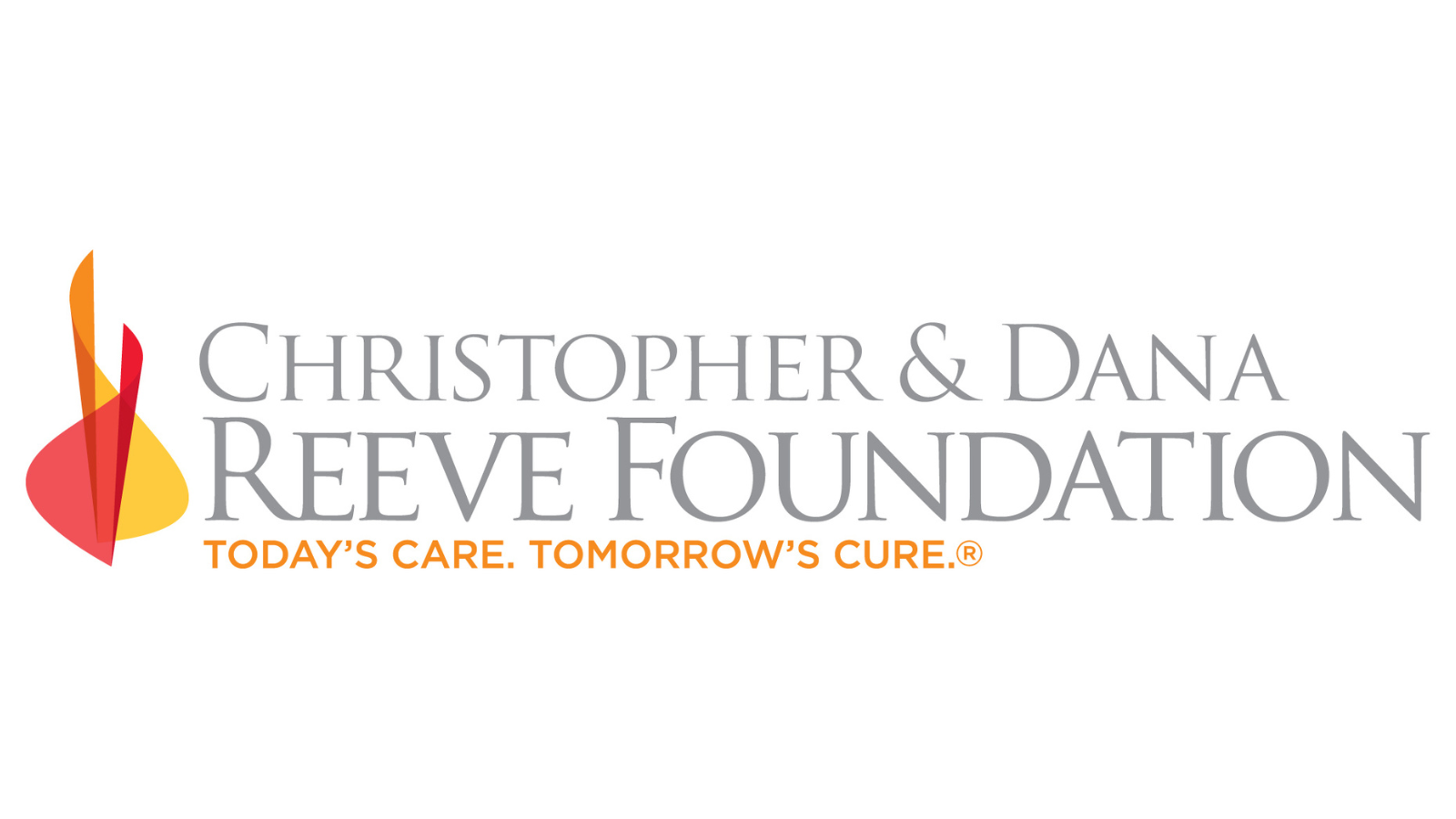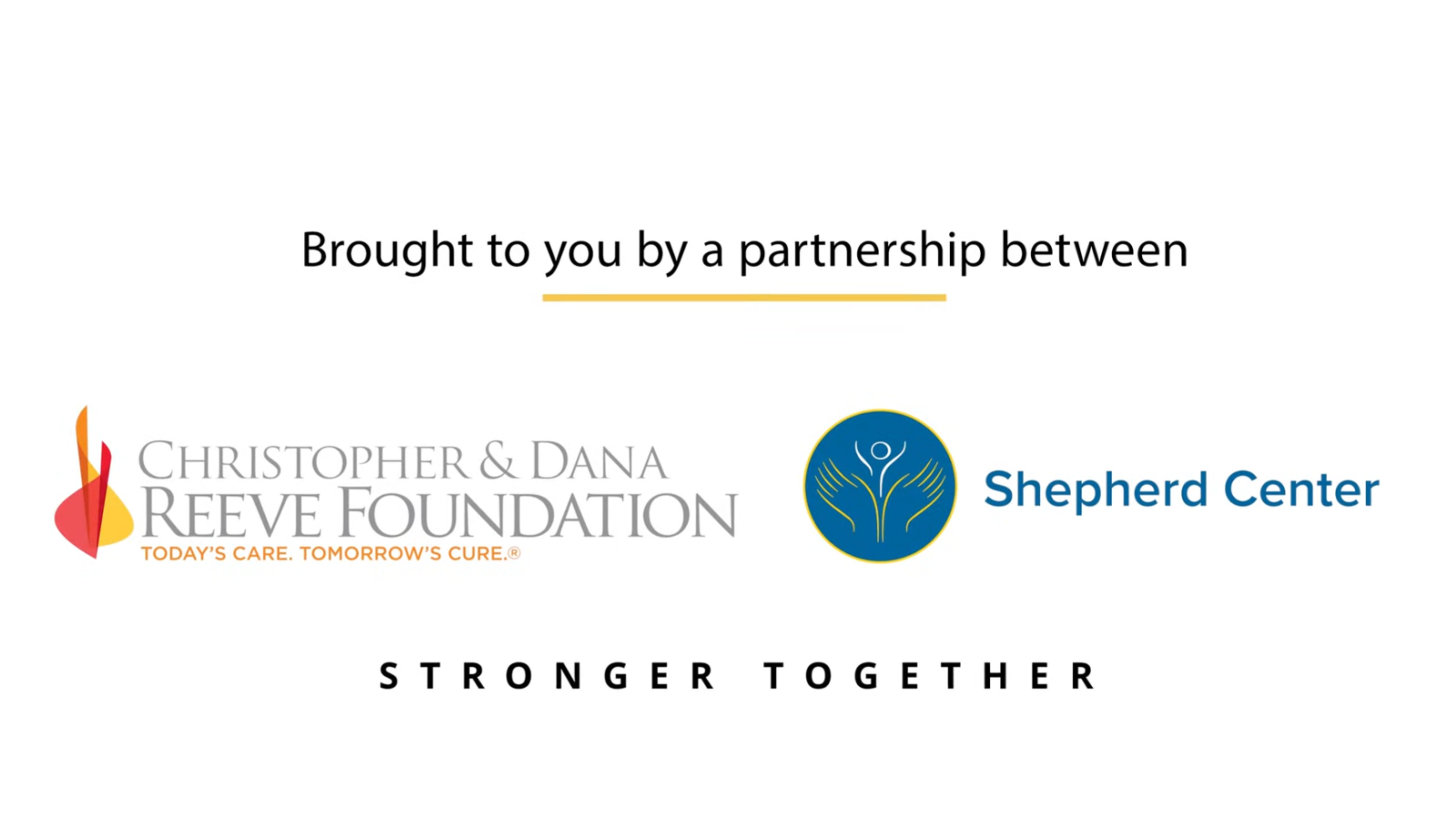COVID-19 Vaccine Perspectives Survey Illustrates Importance Of Vaccine In Paralysis Community
NASHVILLE, TN, and SHORT HILLS, NJ, November 15, 2021
Newly published survey data conducted by Vanderbilt University Peabody College and the Christopher & Dana Reeve Foundation sheds light on the paralysis community’s perspectives on the COVID-19 vaccine. It portends policy implications for future public health campaigns that impact the disability community and their caregivers. Among the findings, reported in Rehabilitation Psychology, is that while more than 80% of people living with paralysis – a group especially vulnerable to COVID-19 – intended to get vaccinated, those who said they were not planning to get the vaccine cited concerns ranging from potential side effects to distrust of the government.
The online survey, conducted in February, included 42 questions designed to gather feedback about how informed the paralysis community was about the COVID-19 vaccine, insights around vaccine hesitancy and how many were planning to be or were already vaccinated. The survey, distributed by the Reeve Foundation via email to individuals with paralysis or affected by paralysis, was completed by 1,014 respondents: 829 persons with paralysis (PWP) and 185 non-disabled (ND) family members/caregivers.
Nearly one-quarter (22%) of PWP respondents indicated they had safety concerns, yet nearly 60% had already spoken with their medical providers about the vaccine. This number is aligned with data from the general population collected during the same timeframe, as reported by the Kaiser Family Foundation’s (KFF) February COVID-19 Vaccine Monitor. The KFF Monitor reported that the share of adults who would “wait and see” how the vaccine is working for others before getting vaccinated themselves decreased from 31% in January to 22% in February.[1] By April, this number appeared to have plateaued at 15%, according to that month’s KFF Monitor.[2]
“Like the general population, our findings demonstrate that substantial numbers of our community were and are impacted by vaccine misinformation. Some respondents said they heard that people were dying from the vaccine, and we also heard about concerns regarding the idea that the vaccine contains a microchip,” said Claire Burdick, Research Assistant at Vanderbilt and co-author of the study.
“These findings point to the critical importance of dialogue with health professionals, particularly rehabilitation psychologists and physiatrists, and we were heartened to see that the majority of our respondents had discussed the vaccine with their physicians. As the pandemic continues and as new questions emerge regarding vaccine boosters, it is imperative that doctors and other medical professionals help counter misinformation that could harm public health by providing clear communication that is specific and directed toward the disability community,” Burdick added.
Key findings of the survey included:
- Nearly 20% (19.8%) of PWP had received one dose of the vaccine at the time of the survey; 15.5% of PWP received two doses. Half of the ND respondents had received either one or both doses of the vaccine. Of note, the single-shot of the Johnson & Johnson vaccine was not available at the time of data collection.
- 80.6% of PWP indicated they would get the vaccine when it became available to them.
- Of those not planning to get the vaccine (96 PWP), the major reasons cited were concerns about side effects (88.5%) – the vaccine is not recommended for some people with underlying medical conditions that are related to paralysis, such as Guillain-Barre syndrome; distrust of the government (63.2%); and wanting to know more about how it works (54.3%).
- Comparing participant responses about safety concerns, the researchers found no statistically significant differences between the PWP and ND groups, though verbatim articulated responses revealed interesting differences. For instance, the PWP group was significantly more concerned about how the vaccine may affect their preexisting conditions/disability. The ND group cited concerns about childbearing that were not reflected specifically by PWP.
- The majority of PWP who had family or professional caregivers expressed that it was very important that their caregivers receive the vaccine (62.2% for professional caregivers and 70.4% for family caregivers). However, most family caregivers (59.8%) had not yet received the vaccine at the time of the survey, and of these, 77.1% planned to when it was made available to them.
“It was encouraging that at the time of the survey, early in the vaccine rollout, the rate of vaccination among people living with paralysis was roughly paralleling that of the non-disabled population. However, access for family caregivers in the survey group lagged,” said Burdick. “We know that this was an issue for many across the nation who are caregivers, and it should be considered with regards to eligibility, supply and demand of vaccines/treatments for similar public health efforts.”
Unpaid and family caregivers were not mentioned in many states’ vaccine distribution plans, causing concern in many families due to the necessary proximity of a disabled individual and their caregiver and the reality that many would be left without essential services if their family caregivers were to become sick. Of the states that included family caregivers in their plans, some included age requirements that excluded the caregivers of many disabled individuals – including those living with paralysis or other disabilities that extend across the lifespan. Further, the pandemic exacerbated the stress of both persons living with paralysis and their caregivers due to the potential of infection and the impact that would have on highly vulnerable family members.
Vanderbilt and the Reeve Foundation are preparing to launch a follow-up survey on the paralysis community’s perspectives around COVID-19 booster shots. That data and the current Vanderbilt-Reeve Foundation survey add to a growing body of research that is helping to paint a clearer picture of the specific effects of COVID-19 on the disability community.
Additionally, the Reeve Foundation is supporting a survey underway by the Kessler Foundation, Spinal Cord Damage Research Center at the James J. Peters VA Medical Center, Craig H. Neilson Foundation, Northwell Health and Icahn School of Medicine at Mount Sinai about the effects of COVID-19 on people living with a spinal cord injury. Other organizations, such as the National Council on Independent Living, have also conducted surveys to better understand the issues surrounding COVID-19 among those living with disabilities.
“Insights from our survey and others are crucial to informing public policies that take into account the unique considerations that come with living with paralysis and other disabilities,” said Kim Beer, Director of Public Policy at the Reeve Foundation. “The Reeve Foundation is proud to partner with Vanderbilt University to understand, amplify and prioritize the voices of our community, who have suffered disproportionately in this pandemic.”
Visit the Reeve Foundation website to learn more about its COVID-19 resources.
###
About Vanderbilt University
Vanderbilt University is a globally renowned research university located in Nashville, Tennessee. Ranked No. 14 among national universities, Vanderbilt offers an immersive living-learning undergraduate experience, with programs in the liberal arts and sciences, engineering, music, education and human development. The university also is home to nationally and internationally recognized graduate schools of law, education, business, medicine, nursing and divinity, and offers robust graduate-degree programs across a range of academic disciplines. Vanderbilt is committed to inclusive excellence, drawing the world’s brightest students, faculty and distinguished visitors from across all cultural and socioeconomic backgrounds and provides a collaborative atmosphere of discovery that drives positive change in the world. Learn more at www.vanderbilt.edu.
About the Reeve Foundation
The Christopher & Dana Reeve Foundation is dedicated to curing spinal cord injury by funding innovative research and improving the quality of life for individuals and families impacted by paralysis. By uniting the brightest minds in the field, we are working tirelessly to accelerate scientific discovery across the field of spinal cord research by investing in labs across the globe. Additionally, through a cooperative agreement with the Administration for Community Living, the Reeve Foundation’s National Paralysis Resource Center (NPRC) promotes the health, well-being, and independence of people living with paralysis, providing comprehensive information, resources, and referral services assisting over 100,000 individuals and families since its launch in 2002. The Reeve Foundation is committed to elevating our community’s voices and needs to achieve greater representation and independence. We meet all 20 of the Better Business Bureau’s standards for charity accountability and hold the BBB’s Charity Seal. For more information, please visit www.ChristopherReeve.org or call 800-225-0292.
Contact: Rita Gentles, [email protected]
SOURCE Christopher & Dana Reeve Foundation

